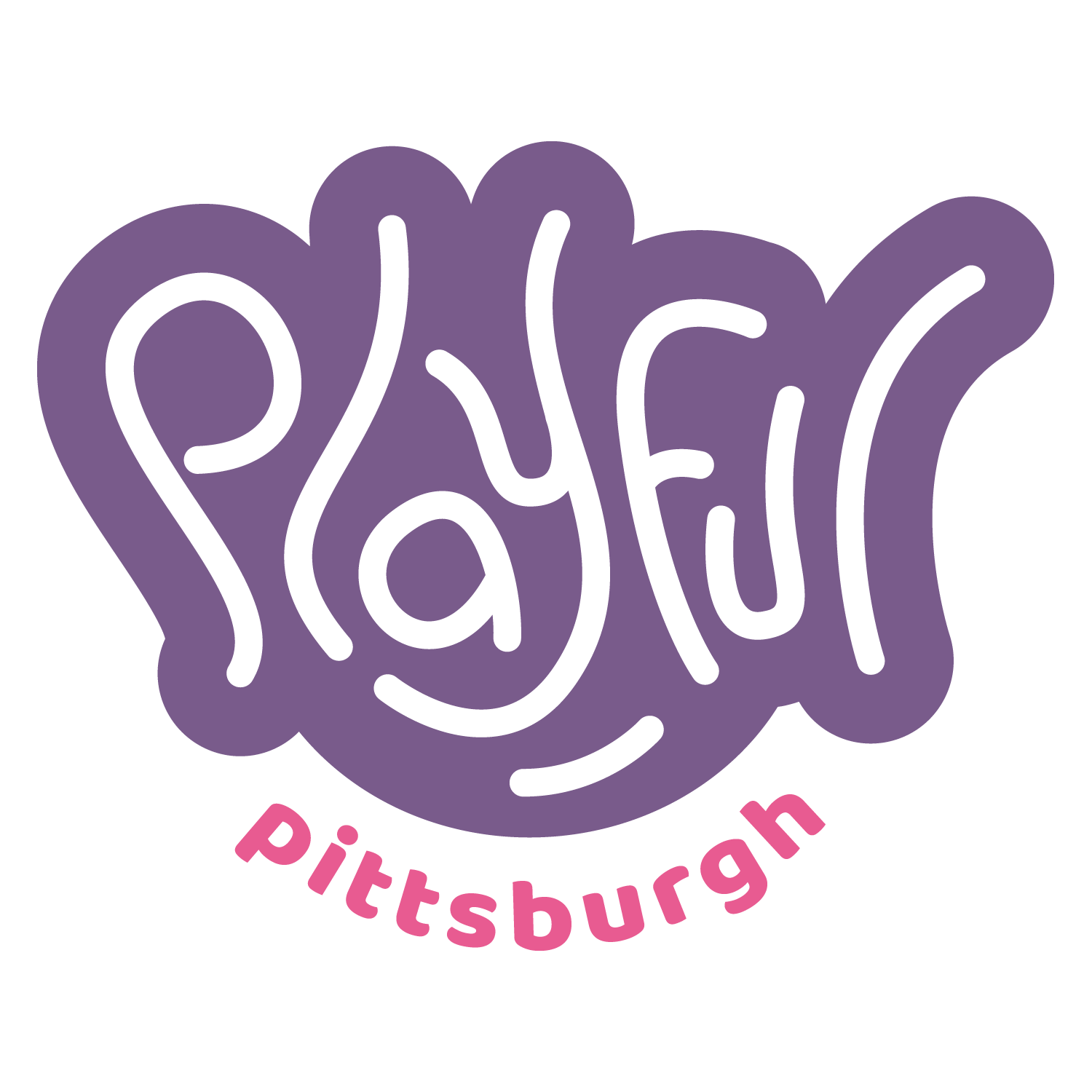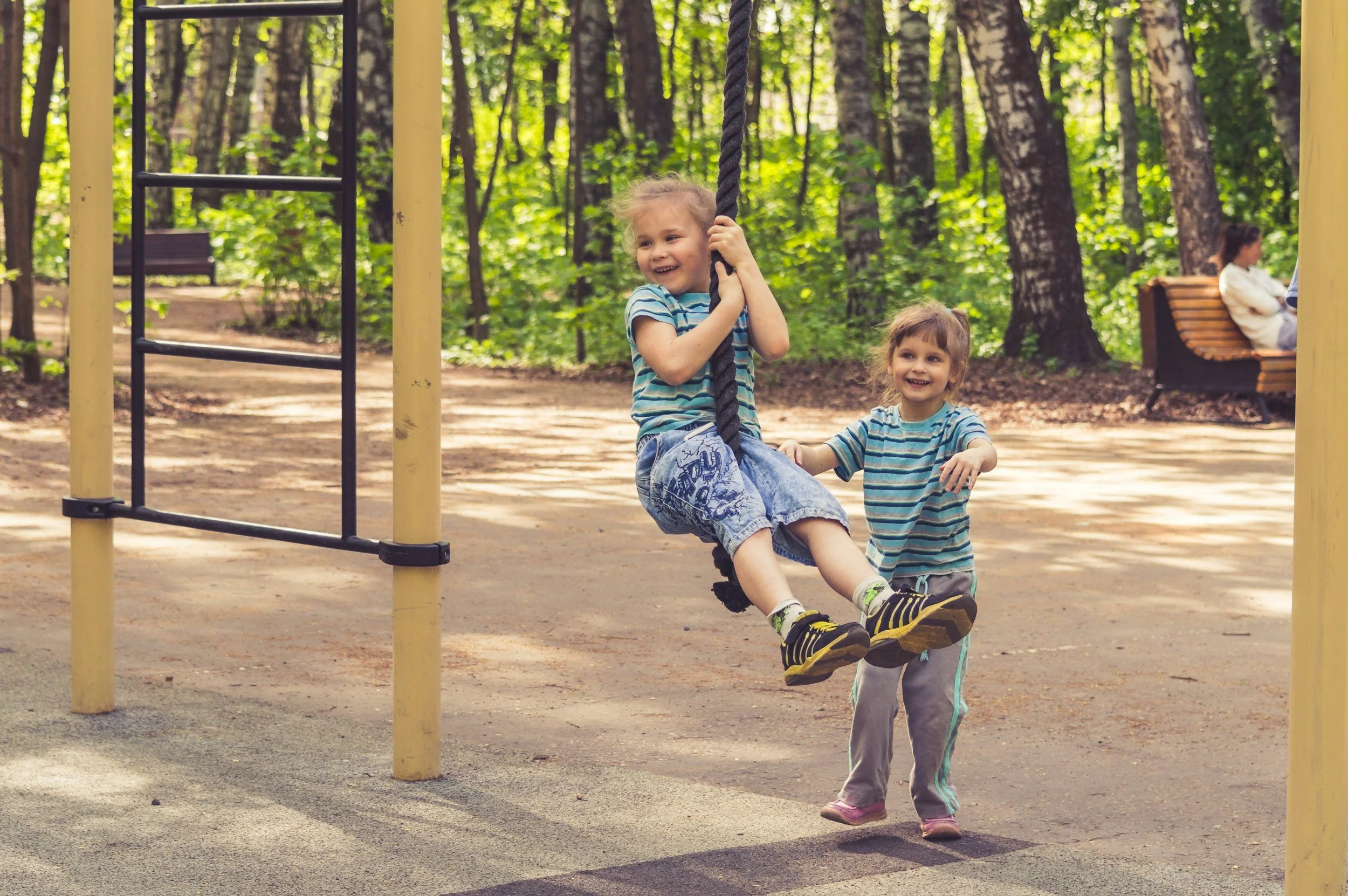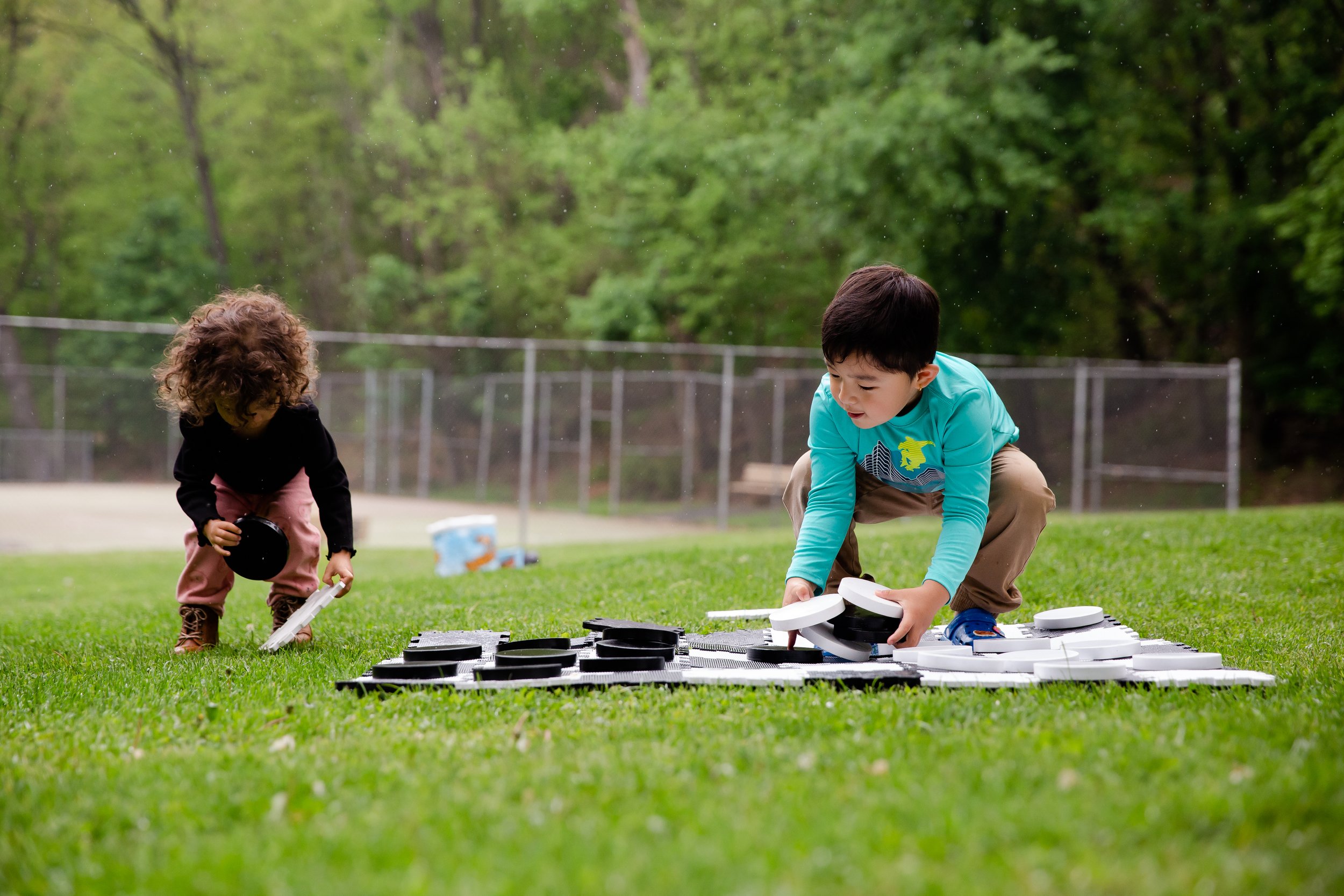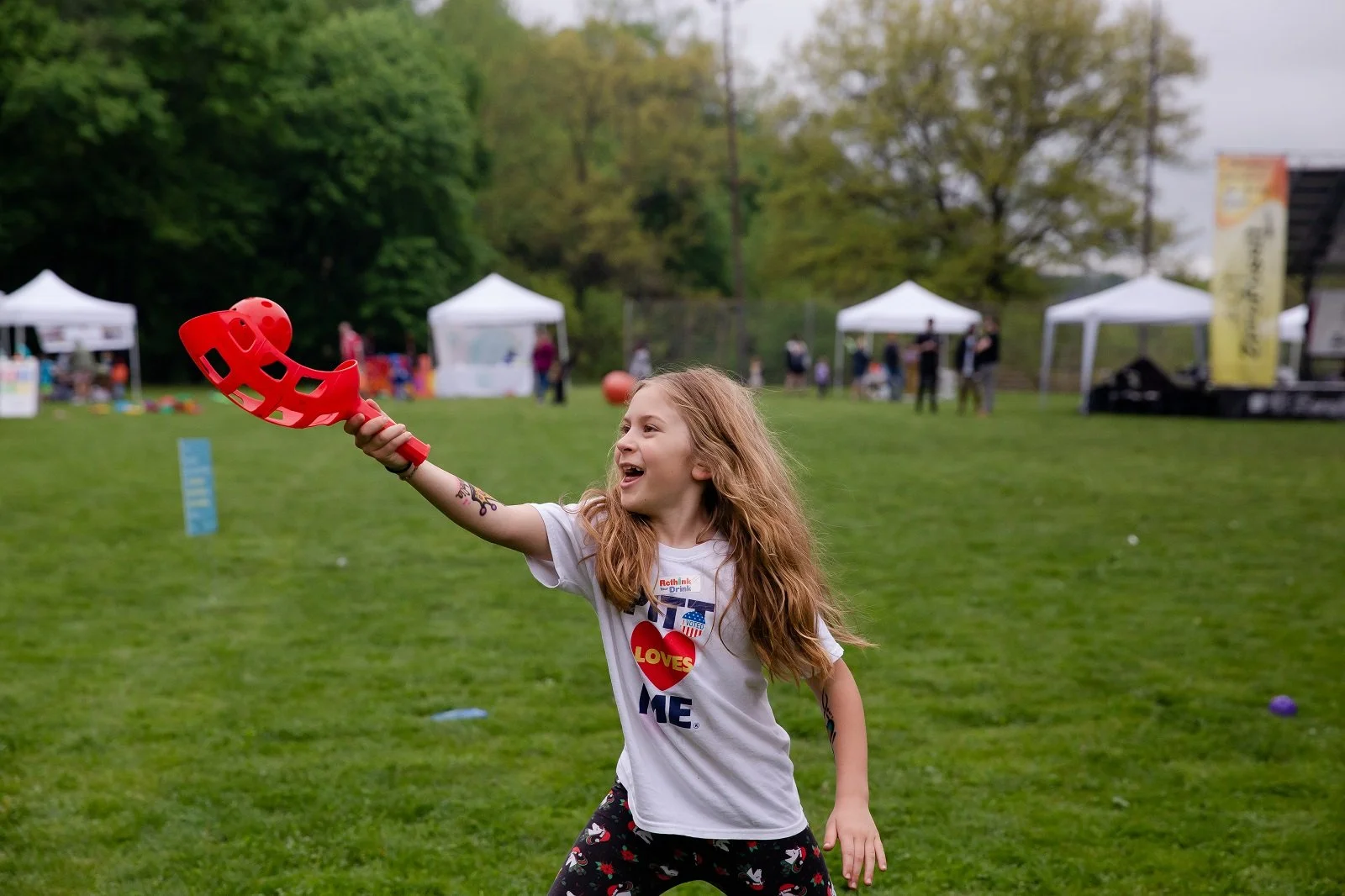
NEWS
Duo’s Treehouse to Offer Bilingual Play Experience for Children on Fridays
Duolingo and La Escuelita Arcoiris are inviting children - birth to age 5 - and their caregivers to spend time with them on Friday mornings at The Kingsley Association.
Duolingo and La Escuelita Arcoiris are inviting children - birth to age 5 - and their caregivers to spend time with them on Friday mornings at The Kingsley Association.
Learn More
This bilingual - Spanish and English - free program aims to foster healthy development for children and support the adults who care for them.
The first Duo’s Treehouse event will take place on Friday, Nov. 15 from 9:30 a.m. to 11:30 a.m. The event will be held at the same time each Friday through Dec. 13 at The Kingsley Association, located at 6435 Frankstown Ave. in Pittsburgh.
Duo’s Treehouse
Duo’s Treehouse is an early learning community initiative designed for children, from birth to age 5, and their caregivers. It offers a high-quality immersive environment that fosters development through play.
The program is grounded in the belief that joyful, inclusive, and developmentally appropriate experiences lay the foundation for lifelong learning. It is designed to offer a weekly bilingual learning experience to children and families who may not be enrolled in traditional child care.
October Recalls on Children’s Products
Parents and caregivers should be aware of several child-related product recalls.
Parents and caregivers should be aware of several child-related product recalls.
Learn More
Here is a list of August recalls collected from the following major federal agencies: the Consumer Product Safety Commission, the Food and Drug Administration, and the National Highway Traffic Safety Administration.
Fisher-Price recalled more than two million Snug Infant Swings due to suffocation hazard. The recalls occurred after five deaths were reported. The swing should never be used for sleep and bedding materials should never be added to it. If the product is used for sleep or bedding is added, the headrest and body support insert on the seat pad can increase the risk of suffocation.
Ricky Powersports recalled youth and adult all-terrain vehicles (ATVs) that fail to comply with the requirements of federal safety regulations. The ATVs’ mechanical suspension fails to comply with safety requirements, posing a crash hazard. Also, its service brakes fail to sufficiently stop the vehicle and the handlebars pose a laceration hazard.
Reyhee Group and Jinling International recalled Droyd Fury Youth All-Terrain Vehicles (ATVs) that fail to comply with the requirements of federal mandatory ATV regulations. The handlebars pose a laceration hazard if the child rider’s body or head strikes the handlebars at a high rate of speed.
Gimars Playpens have been recalled due to entrapment and suffocation hazards. The playpens are found to be in violation of federal regulations for play yards. The included basketball hoop accessory can be a head entrapment hazard. Children can also become entrapped beneath the mattress, posing a suffocation hazard.
Boyce Park Pump Track and Climbing Wall Now Open
A new sports complex featuring a pump track and climbing wall has opened in Monroeville’s Boyce Park.
A new sports complex featuring a pump track and climbing wall has opened in Monroeville’s Boyce Park.
The Boyce Park Pump Track and Climbing Wall is an expansion of an existing 3Bs action park into a gravity sports complex. It includes a large bicycle pump track and seven custom climbing walls.
Pump Track
The new installation will be the largest bike track in the Allegheny County Parks System. It offers varying degrees of difficulty and challenging terrain for bikers of all skill levels.
A pump track is a closed loop track consisting of two components - rollers and berms. Rollers are the small hills built into the track, while berms serve as rounded corners. The track is 740 LF and intended for all skill levels and ages.
Climbing Wall
The bouldering walls can be continuously reconfigured throughout the year to provide climbers with new routes and obstacles.
Bouldering is a type of climbing that doesn’t require the use of a rope or harness as it’s typically done on shorter walls and formations.
For more information, visit Boyce Park’s web page.
Report: Allegheny Landing to Receive $1M Grant for Play-Based Improvements
The Buhl Foundation is providing a $1 million grant for play-based improvements at Allegheny Landing along the riverfront, according to a report by Next Pittsburgh.
The Buhl Foundation is providing a $1 million grant for play-based improvements at Allegheny Landing along the riverfront, according to a report by Next Pittsburgh.
Learn More
The foundation, a grantmaking nonprofit, donated the funding to Riverlife - a nonprofit focused on redeveloping Pittsburgh’s downtown riverfront - on Oct. 1. The play-based improvement project still needs an additional $1 million in funding, the report said.
A spokeswoman for the landscape architecture firm dwg said the goal of the riverfront redesign was to create a space for Pittsburgh residents of all ages.
Currently, Allegheny Landing features two sculptures by Ned Smyth - “Piazza Lavoro” and “Mythic Source” - that were erected in the 1980s.
According to the report, Riverlife and the project’s other partners aren’t likely to add traditional playground equipment - such as jungle gyms or swings - at Allegheny Landing. Instead, they are focused on “artful play.” This could include features that encourage someone’s imagination to create their play space.
Designs for the site suggest the possibility of water-spray features and a wooden stage. Gavin White, Riverlife’s director told Next Pittsburgh that the project was about 50% funded. Its designs are approximately 60% complete.
The full story on the plans for Allegheny Landing can be found on Next Pittsburgh’s website.
Playbook Provides Resources for Emotional Wellness Month
The Genius of Play has released a new playbook that includes a variety of resources to celebrate Emotional Wellness Month in October.
The Genius of Play has released a new playbook that includes a variety of resources to celebrate Emotional Wellness Month in October.
Learn More
The aim of Emotional Wellness Month is to remind people to disconnect and take time for themselves. Emotional well-being can have a significant impact on one’s overall health, whereas mental and emotional stress can result in negative physical reactions, a weakened immune system, and poor health.
The Genius of Play’s new playbook features activities to help children learn and practice the key components of emotional intelligence.
Some of the activities that can be found in the playbook include:
Doing a yoga pose is a low-impact method of strengthening the body
Using calming bottles to encourage creativity and relieve tension
Doing an emotions word search to boost overall brain power and improve concentration
More ideas for play that can promote emotional wellness can be found in the playbook.
Trying Together’s UnConference Event Focuses on Equity in Play
Trying Together focused on the theme of equity in play during its annual UnConference event on Monday, Oct. 14 at Phipps Conservatory and Botanical Gardens.
Trying Together focused on the theme of equity in play during its annual UnConference event on Monday, Oct. 14 at Phipps Conservatory and Botanical Gardens.
Beyond the Playground: Advancing Racial Equity in Play featured two keynote speakers, four breakout sessions, and performances by the Council of Three Rivers American Indian Center dancers.
Play as Early Childhood Liberatory Pedagogy
The day’s first keynote speech was “Play as Early Childhood Liberatory Pedagogy” by Dr. Denisha Jones.
Jones, who serves as the director of Defending the Early Years, noted that childhood is “under attack,” arguing that many reforms in state schools focus on future success, and not early childhood education. She added that early childhood teachers deserve autonomy and a living wage.
“Students go into environments that stifle learning from early childhood, instead focusing on standards, rigor, and testing,” Jones said. “There’s so much pressure on the early childhood community to prepare kids for the rigidity of public schooling.
Jones said there has been a lack of a national investment in young children and their families, adding that there’s not even a foundation to which changes could be proposed. To get free of the current system, Jones said educators must restore the link between high-quality and child development.
In theory, she said, the way to improve the system would be to trust children so that they can trust themselves, ensure that everything in early education is grounded in child development, and emphasize a focus on agency, play, and identity.
In practice, she said, educators should emphasize a child-driven curriculum, document liberated learning (which means to not just test what students know, but to document what they know by paying attention to the play in which they’re involved), and to address the elephant by not assuming that children cannot handle the oppressive forces they face in society.
“We’re being told it’s divisive to talk about race,” she said. “It shouldn’t take a racist encounter to talk about it. We need to give children the language to respond. We say to treat everyone equally. When they’re not treated equally, we don’t give them the tools to respond. Equity is not enough; we need liberation and to remove the barriers. The reality is that this is a highly unequal society.”
Jones said that children who are free to learn are driven by innate curiosity; self-directed through questioning; have time to tinker, build, and experiment; have sustained persistence; are trusted to take risks; and take part in collaboration.
She said that teachers who are free to teach go from teaching their students to survive to teaching them to thrive; utilize the power of observation; take part in nurturing relationships and take time to nurture development; follow a child-driven curriculum; and partner with parents to unleash potential in students.
Spreading Optimism
The event’s afternoon keynote speaker, Anthony (Ant) Toombs, senior guide and outreach specialist for Life is Good’s The Playmaker Project, talked about how to spread optimism among children.
“To combat trauma, we use the antidote of play,” he said. “We teach early childhood educators how to heal through play, we improve student-teacher relationships, reduce educator burnout, and better support the social-emotional health of kids and adults alike.”
In addition to in-person training, The Playmaker Project also offers fully online programs. Every graduate gets ongoing support through further access to coaching, events, and advanced trainings.
During his speech, Toombs incorporated games involving beach balls and paper-rock-scissors to emphasize the importance of play for all ages.
Toombs noted that there are three parts of the brain - the reptile brain (which focuses on survival), the limbic brain (which processes emotions and love), and the neomammalian brain, which focuses on such things as problem-solving and reasoning. He said that many children who have suffered adverse childhood experiences are stuck in the mode of the reptilian brain, making them hostile or aggressive.
“We have to figure out ways to quiet and nurture the snake brain, so that we can engage the limbic brain, which is all about connection,” he said. “Once you have a connection, then you can teach a child.”
He said the four key domains for a positive learning environment in which to grow the roots of optimism are joy, internal control (covering such elements as confidence and safety), active engagement (in other words, being present in the moment), and social connection.
Breakout Sessions
During the morning and afternoon, the UnConference held four breakout sessions on:
Strategies to advocate for playful learning in early childhood (Trying Together’s Policy Team)
An approach to prioritizing open-ended play in the classroom (HATCH Partners in Play)
Risk in play (Trying Together)
Race, identity, and the arts (Lakeisha Wolf)
Parent LAB Play Day (Dr. Ari Brazier)





